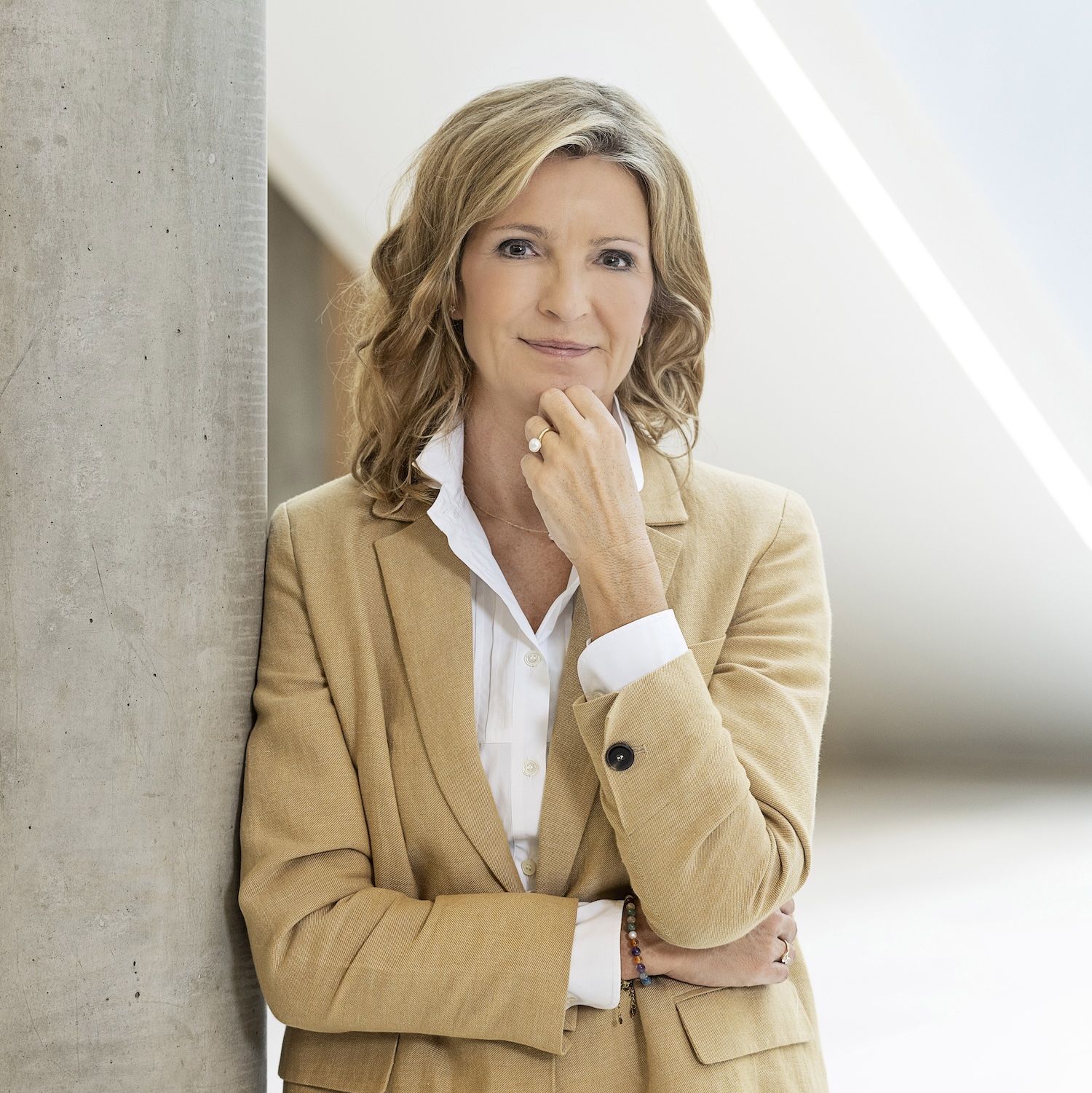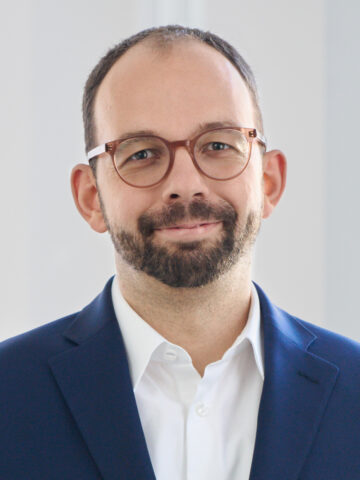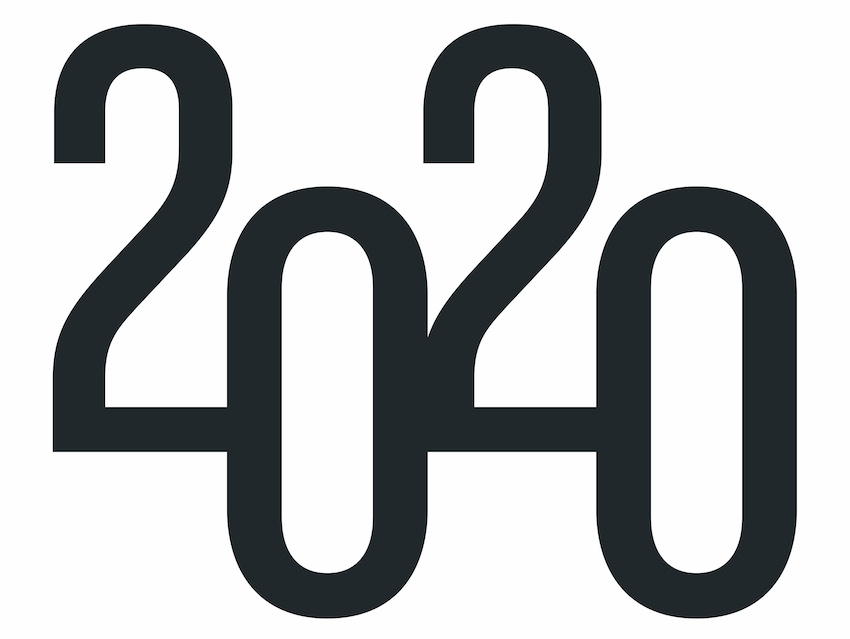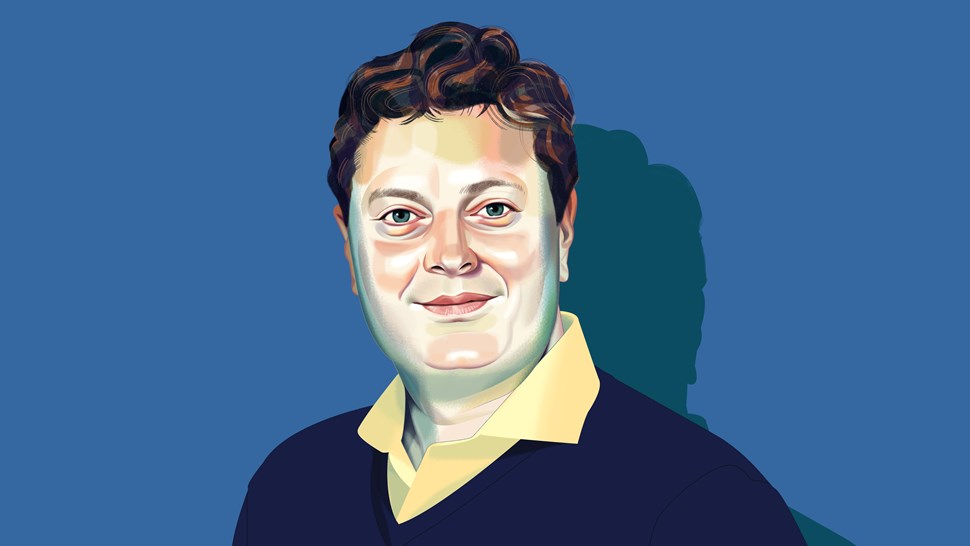Pia Stoklund, Global Head of Marketing and Communication at the world’s largest logistics company, talks about the trademarks of European leadership.
Before she joined global freight forwarder DSV, Pia Stoklund had already charted a rare and varied career, having led communications for luxury jeweler Pandora, fintech Nexi, public relations firm Mannov and financial services group Nordea. She is also a board member of Caliber, a Denmark-based global SAAS platform for business gathering stakeholder insights. Those experiences across regions and sectors have given her a deeply pan-European view—and, beyond that, a global perspective—on business leadership.
As she joined DSV in November 2024, the company had already agreed to acquire DB Schenker, the logistics unit of Deutsche Bahn. The $17 billion deal closed in April 2025, creating the largest logistics business in the world.
In a recent Brunswick Review interview, Stoklund was open about her excitement for the challenges of her new role, bringing together two international firms with operations in 90 countries, and building a unified culture. The mission, she points out, reflects DSV itself: The company is tasked with keeping supply chains flowing, bringing the world closer together.
Stoklund’s energy is sharp and focused, but also mischievous. Laughter comes easily. We talked about the character of European leadership, the importance of purpose, the balance of dialogue and decisiveness, and the “Nordic core” of DSV culture, even as it embraces the diversity and talents of its now global team.
Did you always see yourself working across Europe in a lot of different positions?
No. I didn’t just wake up one morning as a 5-year-old and think, “I want a European career.” But I guess you could say I was dreaming of a life that would take me abroad, to be exposed to many different cultures, people and perspectives. I have a German mother and my family traveled a lot, across Europe with our camper, always driving to all kinds of destinations.
I’m a curious person and I have a strong connection to Europe. But I mainly worked in a Nordic context until about 10 years ago. I joined Nets, the digital payments company, when it was a Nordic company, but at the point when I joined, it was aiming to create a European paytech. We did a lot of M&A to create that European business, in Germany and that region, and in Eastern Europe. That was where I saw, “Oh, this is fun!”
That was why, when the Italian company Nexi ended up buying Nets, I went for the position in Milan. Because I saw that that would give me another opportunity—not just to work out of a different country, but to be based in another European country, to be part of that different culture.
By the time I left Nexi, I knew I wanted the responsibilities of a global position, because I realized I enjoyed the diversity and the different perspectives. But I was also very clear that I wanted to work in either a Danish or at least a Nordic-headquartered company, one with a global perspective. That’s why I went with Pandora, which has a global footprint. And I enjoyed that a lot. DSV is a similar opportunity for me. We have a presence in 90 countries but also a strong Danish heritage.
Your career has taken you through many different sectors in Europe. Are there common leadership trends that one could label as European?
I think there’s something around having a clear purpose. If not “purpose,” then maybe we could call it “meaningfulness.” In my experience, in the Nordics and maybe across Europe, there is a sense that the work needs to be meaningful. At Nexi, the ambition was to digitalize Europe; with DSV, to me it’s about actually bringing the world closer together. That strategic focus guides leadership. So that may be one common denominator.
Another comes from our democratic tradition: The best argument wins. You can be a junior consultant, but if you’re right, you have insights, you share your perspective and your arguments stand up, then that is what we’ll go with. We’re not that hierarchical. I think in the broadest view that’s also a common denominator.
I see large regions of the world where it’s not that natural to speak up; the highest rank wins. Maybe even more so in the Nordics but also in the rest of Europe, we are shaped by this tradition of fostering dialogue and different perspectives.
A more democratic outlook brings its own challenges.
There are always two sides of the coin. On the plus side, you can reach some very informed decisions, building on many different perspectives. The downside is that it takes time to run processes like that. Sometimes fast decisions are needed.
Some countries are more consensus-driven than others. And yes, it can sometimes seem like it takes forever to reach a decision. You need to be mindful of when it is better to have the direction and a fast decision.
When you choose to do that, you also need to be explicit about it. Many people expect to be heard and you need to be very explicit, very clear about why this time is different. Let’s say it’s a crisis situation. We need to make fast decisions. I’ll make the calls. Will it be perfect? Probably not, but we need to make some decisions and drive things forward, because pace is paramount. But then you need to be clear about why you are changing away from the more democratic way of doing things.
DSV has grown very quickly into an international company. Does it still fit that model of European culture?
I think there is definitely a Nordic core or a European core. We’re a big organization, but also a flat one, and one in which you can quickly move from idea to action. We are global and we’re not ignoring that. But I do see a strong core in the culture still, from having grown out of Denmark.
“In my experience, in the Nordics and maybe across Europe, there is a sense that the work needs to be meaningful.”
Given the uncertainties in the global economy, what do you think are the major challenges facing Europe’s businesses?
I think recent years have made it even more clear that you need to operate from your core beliefs, as an organization. One year, popular opinion will point you in one direction and the next year, in another. If you try to navigate by what the right opinion is here and now, you will have a very uncertain path.
My work is creating trust with stakeholders, and you don’t build trust by saying one thing one day and then a different thing the next day. The only steering mechanism you have is to be very clear about your beliefs, “What is it that we stand for? What is our DNA?” And then be true to that.
You need integrity and clarity. That creates respect and trust for most employees, most stakeholders. It’s respectful to assume people can digest and relate to your reasoning, even if they disagree.
That’s not to say that if you have a core belief you can never change it. There are times when you need to reevaluate. But I see a lot of leaders trying to comply with the taste of the day. That can ultimately jeopardize the trust that the stakeholders have in you. And if you do reevaluate and change, do it deliberately and clearly.
Now you’re at what is suddenly the largest logistics company in the world. What’s on your radar for this new role?
Truly bringing 160,000 colleagues together to create a strong sense of belonging to the new DSV, to create a common understanding and also pride in what it is we do. That’s first. And that brings us back to purpose and meaningfulness.
We keep supply chains flowing around the world. That’s our purpose. It’s an important purpose; it’s about bringing the world closer together. I want to see that we all go to work together, with pride in that purpose. So that’s of course very much on my radar.
We are now, as you said, the biggest company in our industry. So also we need to think about how we take on that role, with all the responsibilities, the possibilities, the challenges that come with it. What does it mean to us? How do we represent ourselves as a thought leader?
What is it that sets DSV apart for you?
The drive. I’ve worked across many different industries and companies. There is a very special kind of drive at DSV. It’s about leaning in, finding solutions, not being overwhelmed when you see challenges but actually turning challenges into opportunities. I really sense that with so many colleagues. People who really enjoy working at DSV, they have that kind of drive. If you are that kind of person, it’s a very special place to be because it’s such a prominent part of our culture.
Our purpose at DSV is bringing the world closer together, and that’s reflected in the culture here. There’s a sense of joy of having many, many different colleagues together—nationalities, backgrounds, religions, geographies and everything. There’s a strong global community feeling.
We had a team meeting just the other day and I invited each member to talk about his region. Oscar from Mexico presented what Latin America is actually contributing to the world, with flowers, meat and beer. Andrew in Singapore, then to the Middle East, and Dubai. We are so many nationalities. I think many of us enjoy that in a world where emphasizing division seems unfortunately more typical.
“There is a very special kind of drive at DSV. It’s about leaning in, finding solutions, not being overwhelmed when you see challenges but actually turning challenges into opportunities.”
How would you describe your style of leadership?
I think that’s more for other people to say. What’s most impactful for me is leading from a sense of purpose, as I was saying earlier. Asking, “Why are we here? And from that purpose, how can we contribute constructively to that the business challenges and opportunities now and those that are coming?” Having a strategic direction and then everything else taps into that.
Prioritization, sequencing—those are kind of core disciplines, to me. But also asking “why?” Why are we prioritizing things as we are? Everything I’ve seen and experienced indicates that if you can relate your own job to the bigger picture, then you tend to be more engaged.
Coming into a new organization, one that has just completed a major international acquisition, you must be asking “why?” a lot.
It has been a super exciting period. From a personal and professional view, I’m very happy that I took on this challenge, after having been around the block, so to speak. Yes, coming to a new industry, a global role across communication and marketing, in between signing and closing—it’s just really exciting. Getting to know DSV while at the same time DSV is getting to know Schenker. How do we integrate all this within communication and marketing? What is the bigger integration narrative that we should be driving?
I’m getting my head around all that. Finding some peace in the knowledge that we can’t unleash it all at once; we have to prioritize. A lot of what I’ve done has been prioritization, “Now we’ll do this and later we’ll do that.” There are lot of things that have to wait.
There are things that some stakeholders might expect you to do. So you have to be prepared for those conversations, explaining and defending your priorities. We may have been doing things one way for the past 10 years, but now we have to do this other thing, because that’s where we’ll add value.
For colleagues on the team, you need a lot of dialogue around change. With a new international team, lots of different ways of understanding and doing things—it adds to the opportunities but also to the complexity.
Are there cultural obstacles with such an internationally diverse group?
What I’ve experienced and what is reinforced for me every day, is that we have more in common as people than we have differences. There’s so much that connects us as human beings, things that make us proud, happy, sad. We just heard from one colleague in Asia about his son graduating high school and everybody can relate to that. We have different behavioral patterns and yes, I sometimes have to stop and think, “what would the reason be for this person to behave this way?”
Most of the time, all people want to contribute. If you have that as your starting point for understanding, then when you see behaviors that don’t fit your expectation, you can extend some courtesy, to think, maybe they have another way of doing things. It’s very much about dialogue, trying to understand where the other person comes from.
DSV now has huge industry knowledge, really unique skills within many areas of expertise. And when we bring all that into play, we are unbeatable.
Have there been formative influences for you that have shaped your thinking?
I’m lucky to have had a lot of good people at the companies I worked with who mentored me. I try to identify good people and I’m privileged to have a lot of them in my life, including at DSV. There are so many people that are eager to help a newcomer, to offer insights into the industry or ways of doing things. On a weekly basis here, I get colleagues reaching out to see if they can help, or connect me with others.
What do you do outside of work to recharge?
I really enjoy being with good people outside of work as well. That is what recharges me. Of course I do yoga and I do winter bathing. I run, a small race every once in a while, and I have walked the Camino. So I try to be active. But it’s really the people that make the difference for me.




